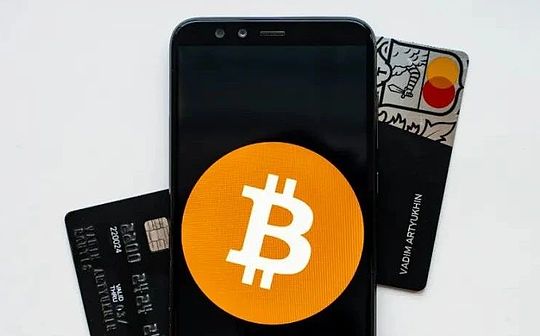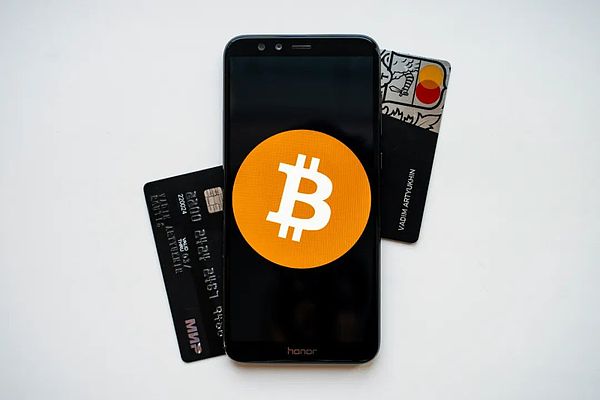
Have you heard of VCC?In view of the rapid growth in user demand for overseas shopping, cross-border e-commerce, subscription services, etc., virtual credit cards (full name Virtual Credit Card, hereinafter referred to as VCC) are becoming one of the mainstream payment methods and are favored by users for their convenience and efficiency.In essence, VCC’s main functions are the same as traditional physical credit cards, and have its own card number, validity period and security code. The only difference is that VCC only exists in network or mobile applications in data form, unlike physical credit cards that have actual plastic or metal cards.VCC is usually issued by several types of institutions such as banks, large financial services, financial technology companies and cross-border payment platforms.At present, many cross-border payment platforms are competing to provide cross-border payment solutions, using virtual credit cards as payment methods.

Generally, there are several types of VCC card participants: issuers (such as banks or financial institutions) are responsible for issuing and managing virtual credit cards to ensure the security and legality of virtual credit cards; payment platforms (such as Alipay, WeChat Pay, etc.) provide the use of these.Channels and services for card payment, providing convenient payment experience and a wide range of usage scenarios; Merchant and E-commerce Platforms: Merchant and E-commerce Platforms that accept virtual credit card payments, enabling users to use in various online and offline scenariosVirtual Credit Card; User: Individual or corporate users who end up using virtual credit cards to pay, they apply for and use virtual credit cards through these platforms and institutions to conduct various online transactions.
With the popularity of virtual currencies around the world, some VCC issuers are also trying to combine them with virtual currencies to gain more potential users.
Recently, Mankun Law Firm received consultation from an overseas company that plans to issue VCC and support customers to recharge in virtual currencies such as USDT.It seems that the user recharges virtual currency into the card, but in fact the company converts the customer’s virtual currency into US dollars, recharges it into the card and charges a certain service fee.Finally, customers can spend with US dollars from the VCC card.
So, does this operating model involve potential criminal risks?If so, how should the publisher respond correctly?Lawyer Xu Qian from Mankun Law Firm hereby conducts a brief analysis of the article.
Potential legal risks of the issuer
In response to customer consultation, Lawyer Xu Qian answered the customer from a series of compliance factors such as whether the company is licensed, application process, identification of customers and transactions, foreign exchange control, and whether it deposits customer funds in the company.The following are the main risks that VCC issuers need to pay attention to during the consultation process.

1.Unauthorized, suspected of illegal operation
Users who often read articles from Mankun Law Firm should have a general understanding that whether it is the traditional financial industry or the financial field involving Web3, they belong to the franchise industry, that is, they are not allowed to operate without a license or operate financial business beyond the scope.Moreover, financial licenses have national boundaries, and overseas institutions must abide by domestic regulatory rules when conducting their business in China.
But in actual use, we often encounter that many VCC card issuing institutions only hold financial licenses in their locations, which meet the business development requirements of local laws and policies, but do not have financial licenses in other countries or regions, which will lead them to engage in domestic activities.The financial business is an illegal financial activity.In Chinese Criminal Law, if you engage in fund payment and settlement business without the approval of the relevant state authorities, the amount is more than 2 million yuan, or the amount of illegal income is more than 50,000 yuan, it may be considered as the crime of illegal business operations.
This is why some VCC cards cannot be applied for when the user IP is located in China.Obviously, it is because this type of VCC card issuing agency failed to obtain relevant domestic licenses.
2.Funding precipitation,possibleIllegal fundraising
VCC increases balance through recharge, thereby making online payments and consumption.The most prominent feature of VCC recharge in terms of capital flow is that the recharge funds must be turned over through VCC card issuing institutions or third-party payment platforms.Many card issuing institutions complete the recharge and delivery of funds through third-party payment; some card issuing institutions choose to transfer funds through personal accounts, and at this time, VCC card issuing institutions act as a third-party payment platform.
When the user has not recharged and has not transferred other accounts, funds will be retained in the VCC payment platform account, which will lead to a large amount of funds that may be deposited in the platform account.This model is a bit similar to the WeChat wallet or Alipay we commonly use.When we recharge into our wallet, the money is placed in the accounts of these platforms before we spend the money in the wallet.
At this time, the operator of the VCC card issuing agency will control the flow of deposited funds. If they use these deposited funds for higher-risk investment activities, and subsequently mismanagement or even run away with the money, the credit risk and customer fund losses will be caused.It’s self-evident.In this case, VCC issuers may be suspected of illegal fundraising.
3.Other common legal issues
In addition to some legal risks involved in issuing the card itself, VCC will also be affected by the issuer because it is applied to some potential illegal activities.
Anonymous and convenient, easy to be used by money laundering.Some VCC platforms do not need to upload their ID documents and can apply using third-party verification. Some platforms do not provide effective identity identification for cardholders, so that virtual credit cards can be used anonymously.In addition, once the VCC card can be recharged through virtual currency, its anonymity and convenience will be significantly improved and it will be easier to be used in money laundering activities.Previously, some media reported on cases of cashing out money laundering using fake overseas virtual credit cards.
Cross-border payment, breaking through foreign exchange control.Some virtual credit cards support virtual currency recharge, and some virtual credit cards can break through domestic foreign exchange regulatory requirements through overseas cards and overseas merchants’ cash withdrawals, and realize cross-border conversion between local and foreign currencies.For example, a VCC can be recharged in RMB and then exchanged for US dollars for consumption. Cardholders only need to recharge and withdraw cash through VCC to achieve acceptance between RMB and US dollars.However, such domestic individuals engaged in foreign exchange trading, they must obtain corresponding business qualifications in accordance with the law, otherwise they are also suspected of private transactions, disguised transactions, and reselling foreign exchange.
VCC mainly solves the problem of cross-border payments. If the platform knows that others use their services to conduct criminal activities, it still provides payment settlement and other assistance, it may constitute the crime of assisting information cybercriminal activities.In addition, during the application and use of virtual credit cards, a large amount of sensitive personal information, financial information, transaction information, etc. If the information security protection measures are not in place, it may lead to information leakage, causing identity impersonation, asset theft, and moreEven serious criminal problems such as extortion and kidnapping may arise.
Attorney MankunConforming in complianceDiscussion
Based on the above potential risks, if you want to issue VCCs, especially VCCs that can recharge virtual currencies, please accept the five major suggestions from lawyer Mankun:

1.Obtain a legal license
Ensure that the platform obtains relevant financial licenses and licenses before operation and conducts business legally and in compliance with regulations.If financial business wants to develop its business nationwide, it can only issue a national financial license by the central financial management department.In addition, we should also pay attention to the financial license and license of the platform user.
2.Strengthen KYC and KYT
Implement strict customer identity verification (KYC) procedures to ensure that each user’s identity is authentic and reliable, and prevent false accounts and illegal activities.If there are risks or other problems in the transaction, users can be directly found, which is conducive to combating crime and protecting the security of users’ assets.In addition, customer transaction identification (KYT) is also required.By understanding customer transactions, identify the authenticity, asset value and liquidity of transactions.
3.Establish a sound transaction monitoring system
Establish a complete transaction monitoring system to promptly detect and report suspicious transactions, and prevent money laundering and other illegal activities.If there is a high frequency or short time change of IP addresses for transactions, transactions issued from accounts with higher risks, and transactions of unusual nature and scale, it is necessary to conduct a comprehensive risk quantitative system analysis of transactions and accounts, and comprehensively conduct a comprehensive risk quantitative system.Master the transaction risk situation.This will help the platform quickly identify possible or abnormal behavior patterns, thereby effectively preventing and responding to potential illegal activities such as money laundering, fraud, and gambling.
4.Establish a platform internal control system
Regularly train employees on laws, regulations and compliance operations to ensure that all employees understand and comply with relevant laws and regulations.Strengthen employees’ awareness of anti-money laundering compliance, encourage employees to actively report suspicious activities, and participate in anti-money laundering work.During daily operations, help employees accurately assess business risks and effectively identify risky customers and high-risk transactions.At the same time, a sound internal control system is also needed to prevent employees from transferring or misappropriating customer assets within the platform.
5.Data protection, information security
Take effective data protection measures to ensure the security and privacy of user information and prevent data leakage.At the same time, the issuing platform must follow payment service security standards and transaction processes to ensure user funds, transaction security and information security.We can maintain good communication and cooperation with regulatory agencies, keep abreast of the latest laws, regulations and regulatory requirements, and ensure that the platform operations comply with regulatory standards.








